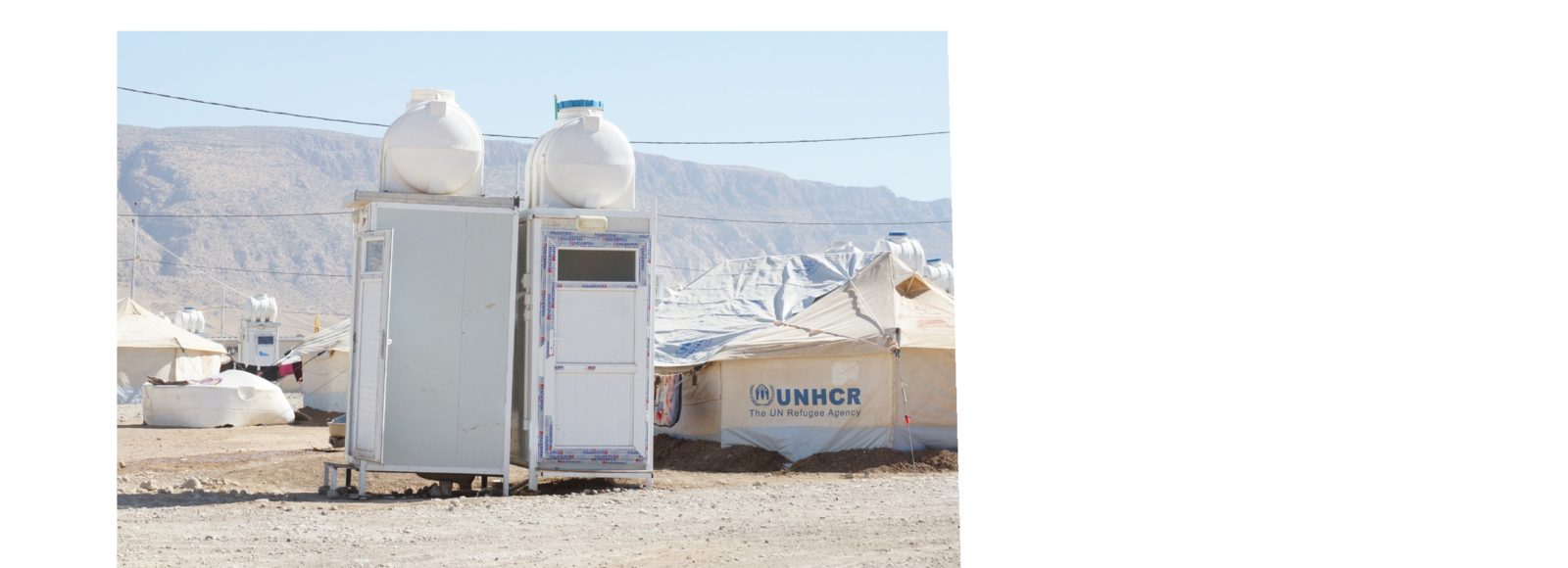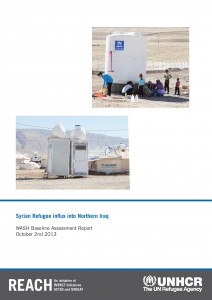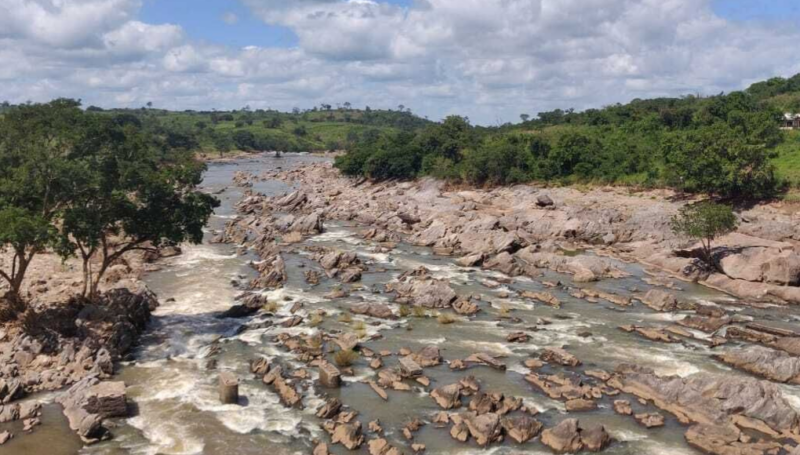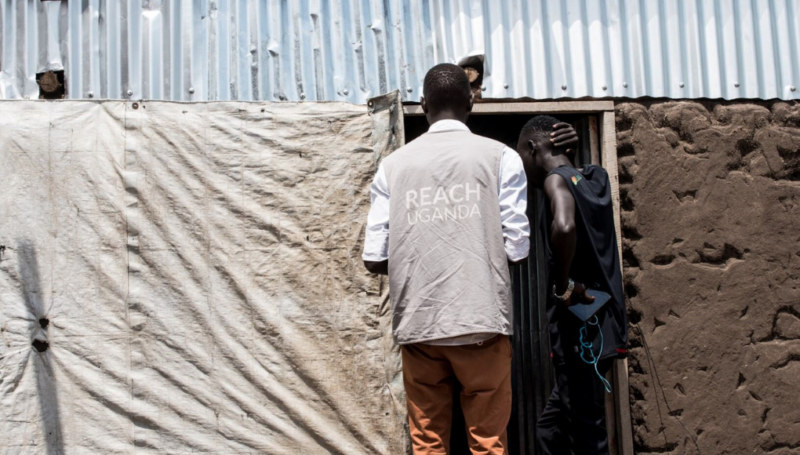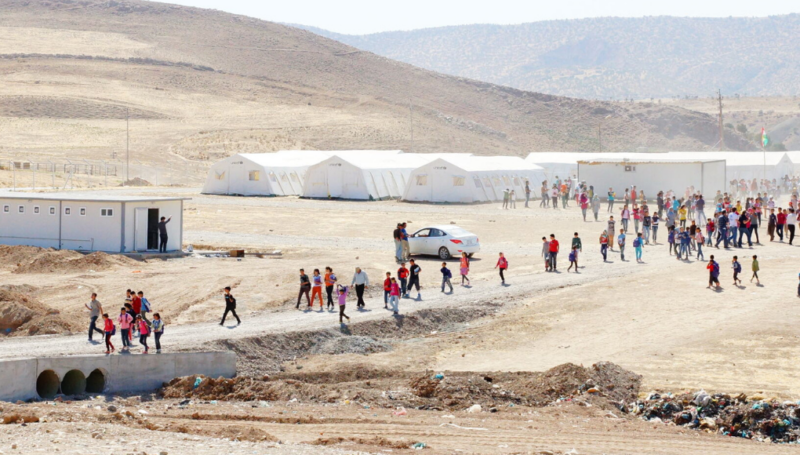Voices from the Field : Featured Report
Iraq, Kurdistan Region : The rapid influx of refugees, approximately 61,000 new arrivals since the 15th of August 2013, has stretched the capacity and resources of aid actors, and led to challenges in the provision of basic services to the 220,000[1] Syrians residing in camps and urban settings across the Kurdistan region of Iraq. Indeed, due to the new and makeshift nature of many camps, humanitarian actors have struggled to provide sufficient water and adequate health and sanitation services to all refugees.
In order to support the humanitarian response and to build on its extensive presence, REACH in partnership with UNHCR and upon the request of the Water, Sanitation and Health (WASH) sector working group, collected data through field assessments on WASH related themes across the newly established camps in the region.
Therefore the WASH Baseline assessment report aims to provide relevant humanitarian sectors with a baseline overview on themes such as water access, WASH facilities and sanitation. Hereby, the humanitarian actors have gained baseline information on the WASH needs and gaps across the camps, which will in turn allow them to better target beneficiaries as well as result in more efficient and effective programme development and implementation.
Findings of the assessment reveal that large discrepancies exist between the different camps, in terms of households’ water needs, perceived water quality and sanitation. For example, in Kawergosk and Arbat, respectively 40% and 51% of households reported to have had sufficient water, whereas in the seven other camps surveyed it was almost 90% and higher. However, a particular concern throughout all the camps is the high proportion of refugees that reportedly had diarrhea at least once during the two weeks prior to the assessment (36% of children under the age of five and 29% of adults).
REACH will continue to provide regular updates on the refugee influx in Northern Iraq, conducting thematic assessments on topics such as food security and disabilities in the new camps.
Please access the full report : here
[1] UNHCR Syrian Refugee Regional Response Information Portal, http://data.unhcr.org/syrianrefugees/country.php?id=103





